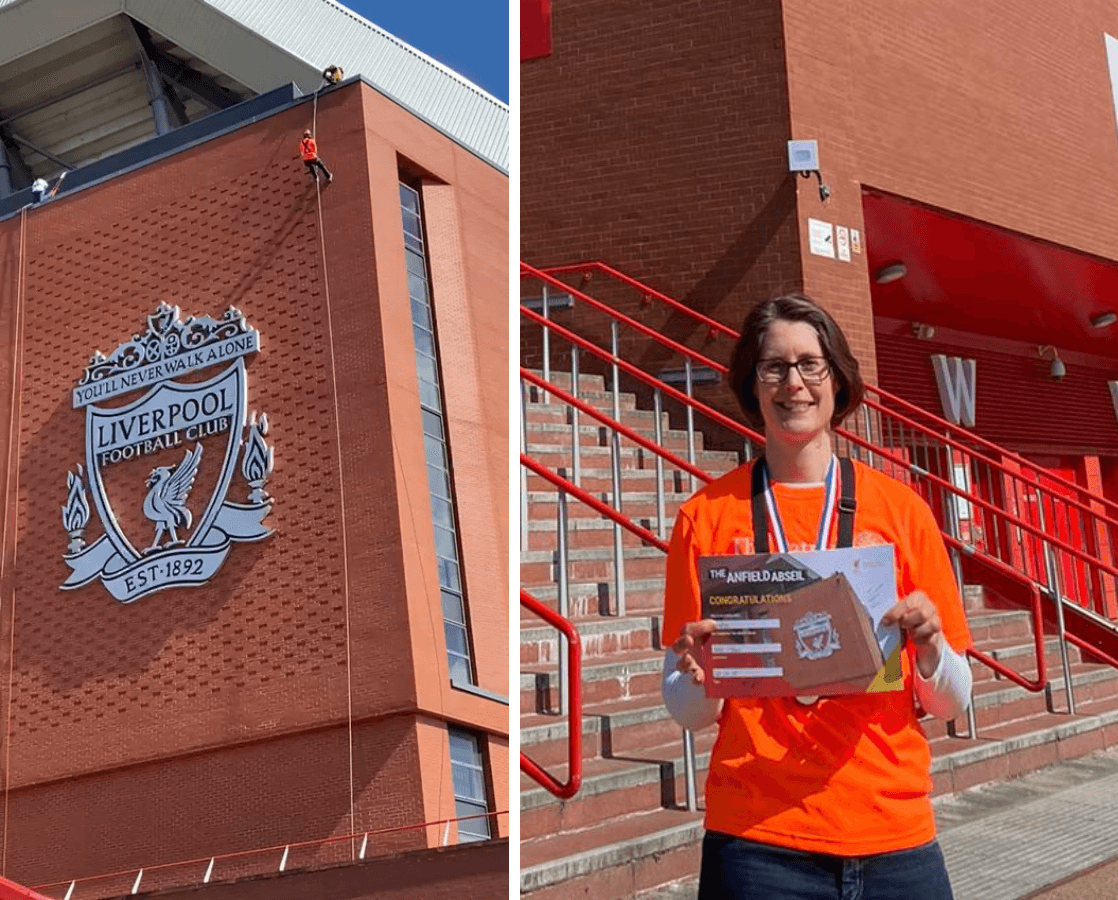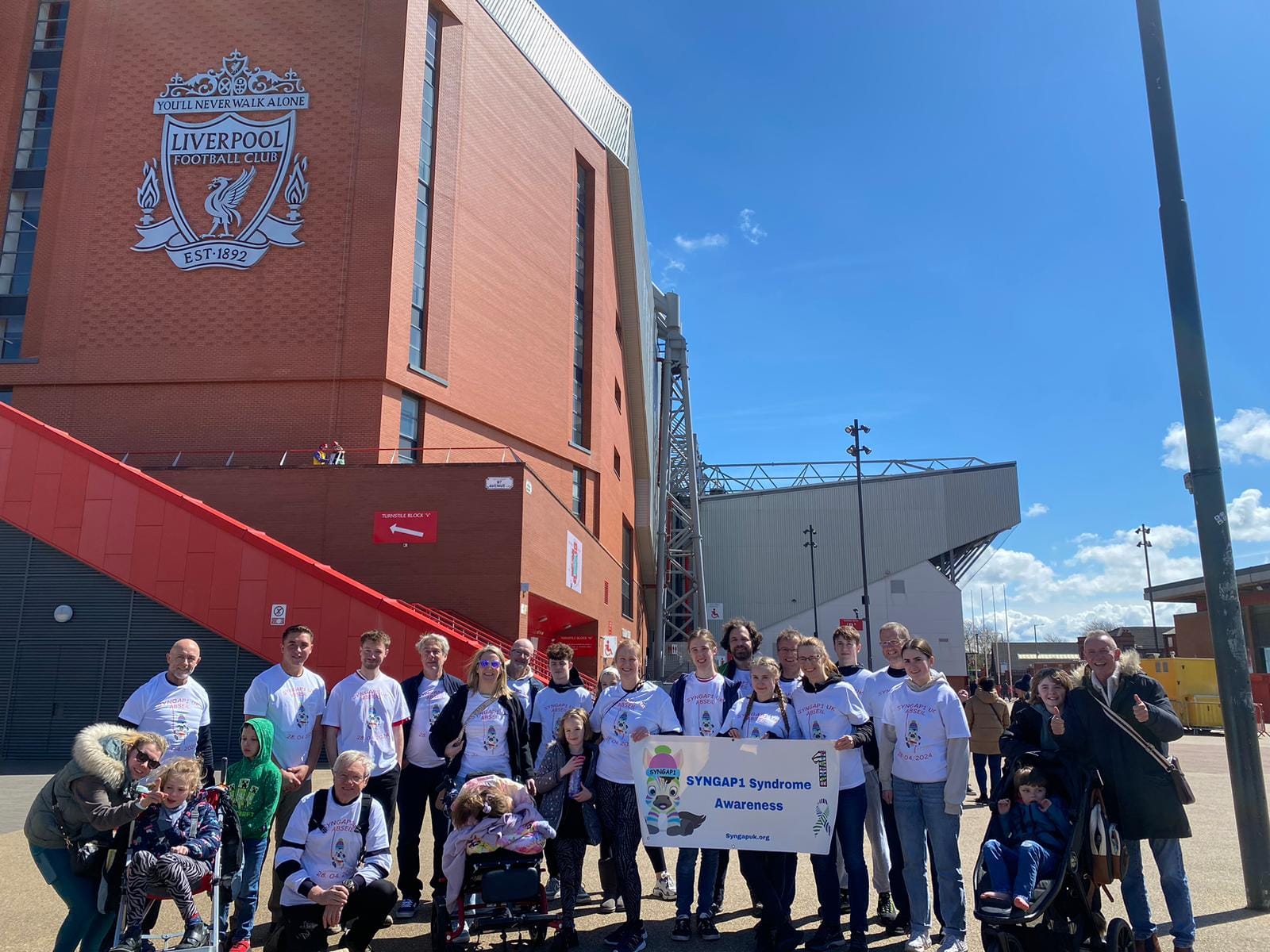Dr. Lindsay Mizen, a PWC/SIDB member joined families and friends of people with SYNGAP1 Syndrome and did the Anfield Abseil to raise money and awareness of this rare condition.

Over 50 people volunteered to abseil down the 100ft height of the Main Stand of Anfield Stadium in Liverpool last Sunday, organised by SYNGAP1 UK.
Approximately £45,000 was raised in total, all of which will go to the Patrick Wild Centre to help directly fund the vital research they are carrying out on SYNGAP1 Syndrome.
Well done to everyone involved!

About SYNGAP1 UK
SYNGAP1 UK is a charitable organisation set up and run by parents of children who have been diagnosed with rare genetic condition, SYNGAP1 Syndrome. SYNGAP1 UK raise money for research into this debilitating condition and to help support families living with it.
About SYNGAP1 Syndrome
SYNGAP1 Syndrome is a rare genetic condition with only approximately 1000 patients diagnosed in the world, of which about 100 are in the UK. However, scientists believe there may be as many as 8 million people with the condition worldwide. It is also thought to be one of the biggest genetic causes of autism and learning disability. SYNGAP1 Syndrome was only discovered relatively recently, in 2009. Due to this, very little is known about the condition, and there are currently no specific treatments and certainly no cure.
SYNGAP1 is a gene that we all have which makes a protein called SynGAP in our brains. The SynGAP protein is vital for brain development and functioning. Everybody has two copies of the gene, but unfortunately for our children one copy doesn’t work properly causing less SynGAP protein to be produced. This results in SYNGAP1 syndrome. People with SYNGAP1 syndrome all have some form of learning difficulties, which range from mild to profound, around half will also have autism and at least 80% have epilepsy amongst other symptoms.
The main symptoms are:
- Intellectual disability
- Epilepsy
- Global developmental delays
- Severe communication delays/non verbal
- Autism
- Sensory Processing Disorder
- Challenging Behaviour
- Sleep disorder
- ADHD
Despite being a genetic condition, SYNGAP1 Syndrome is not an inherited condition. It is a ‘de novo’ mutation that occurs around conception. It is essentially a ‘bad luck’ mutation and could happen to anyone, without any history of disability in the family.
